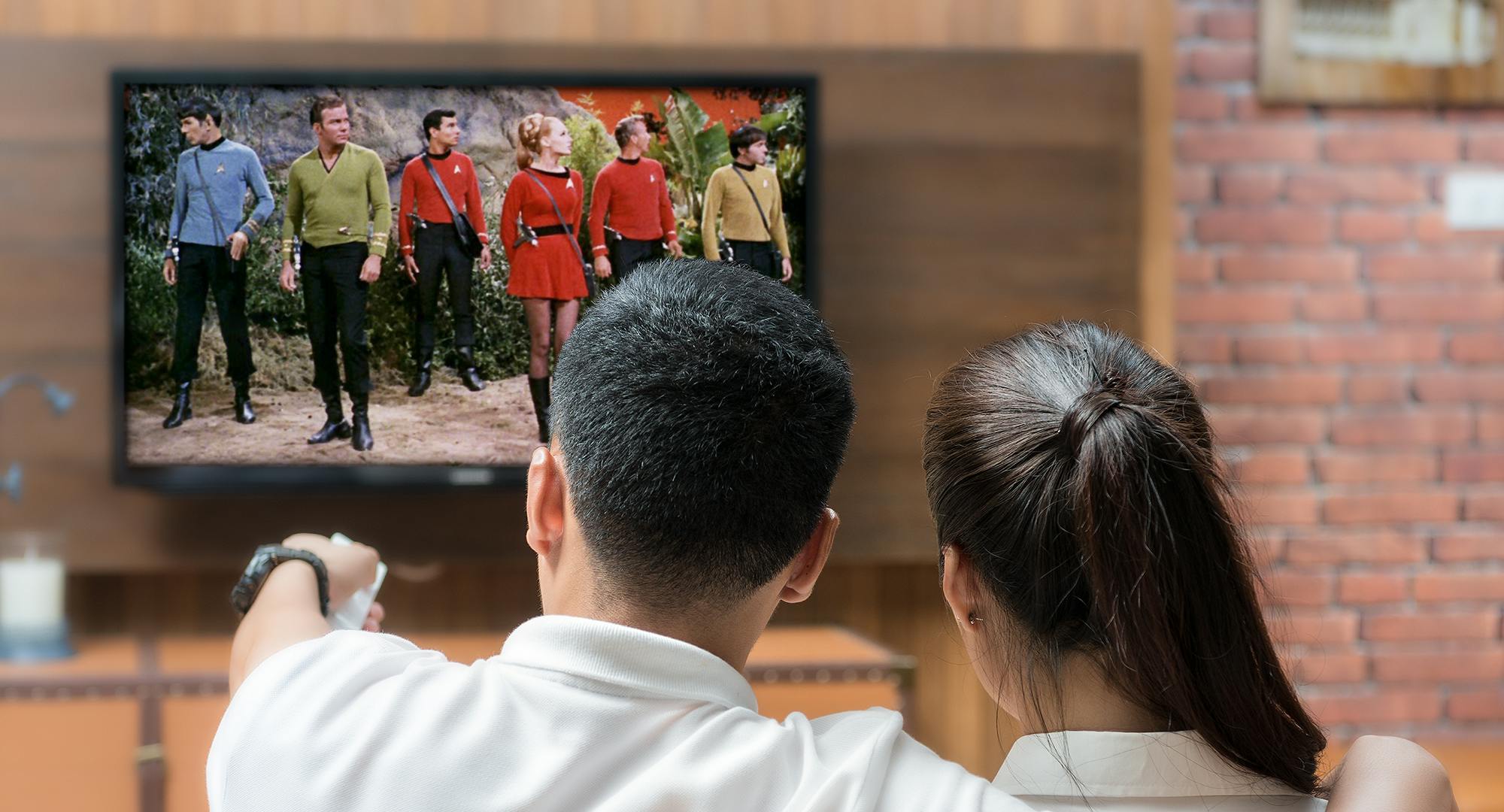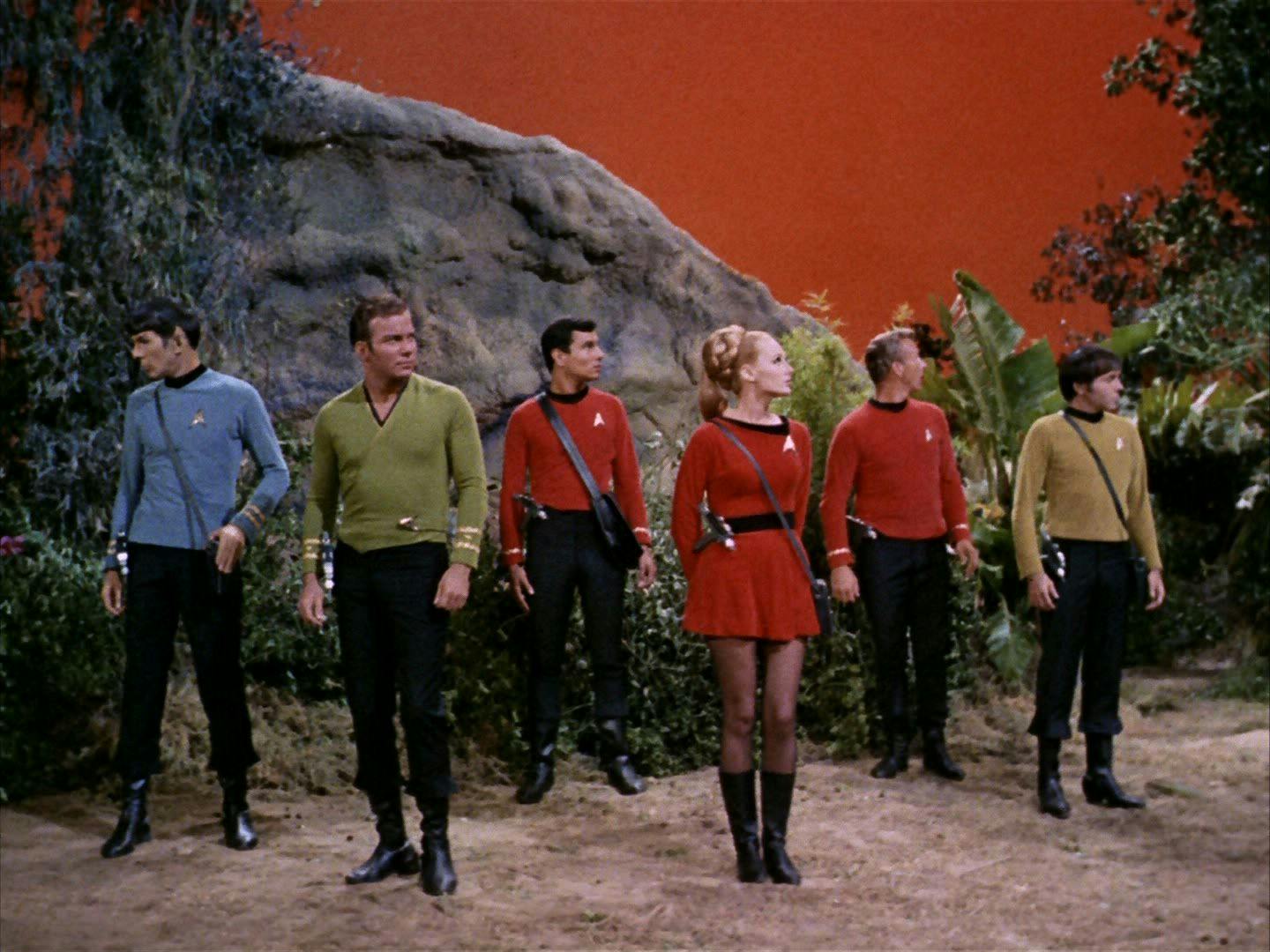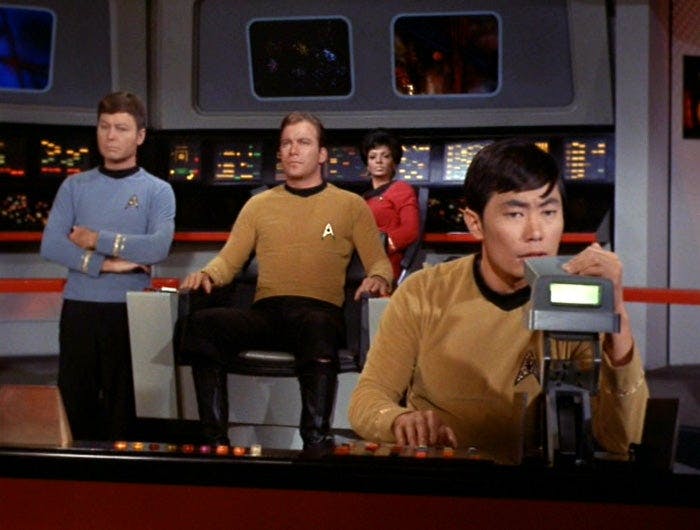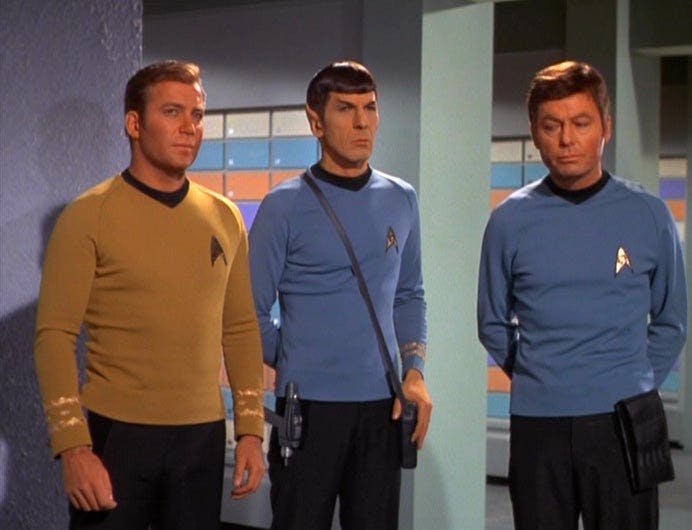Published May 27, 2020
My Parents Visit the 23rd Century to Enjoy Simpler Times
One writer reflects on what Trek means for her family

StarTrek.com
Every night at 7:00, my parents compete to see who will be the first to correctly name the Star Trek: The Original Series episode that’s starting.
“I got it! It’s ‘The Apple,’” my dad will say, usually guessing correctly before my mom figures it out. Broadcast television is the wild card, and it’s crucial to the game. The person in the control room at the television station (if it’s still a real person) is the unintentional host. I tried to introduce them to various streaming services – one of the marvels of the modern world – so they could turn on any episode, any time, but it didn’t take.
“I like knowing other people are watching the same thing I am,” my mom said.

StarTrek.com
There are clues in their Star Trek game – screechy singing in the opening sequence of seasons two and three, yellow titles in the opening sequence of season two. They’ve gotten so good at naming Star Trek episodes, they had to reinvent the game by turning the sound off or looking away from the screen. The next phase, I assume, will involve turning the TV off and intuiting which episode is starting.
The series aired during their formative years – my dad was 16 when the first episode aired and 19 when it ended in 1969. His music tastes ended the same year the show did. When I was growing up in the 90s, songs by The Beatles or The Lovin’ Spoonful could almost always be heard playing in our house. I would sometimes find him zoned out in front of our Gateway computer watching swirly Winamp patterns shapeshift to the beat of his 1960s tunes – the computer pulling him back in time.
“That sounds like computer music,” he says, wincing, when I try to play him modern artists I think he might like. He’s not wrong – most of the music I listen to is manipulated by computers, I think. He prefers music in its original form before it was tweaked and enhanced and changed.
His favorite show, with phasers and transporting and all, also brings him back to simpler times. He could more easily explain the theory of warp speed than explain how to add a background on Zoom (when he couldn’t figure it out, he propped a painting up behind himself instead). My mom has her own struggles with technology. She knows just enough about Facebook to be dangerous, and one day, she created a Facebook event by accident. The event was titled “Lisa” (my sister’s name) and scheduled for 4:00 p.m. on a Saturday but contained no other information.
On Star Trek, the computer is a (usually) obedient voice you shout things at. It went a little out of whack in “The Ultimate Computer,” an episode featuring a supercomputer called the M-5. One of the first clues that something was amiss was that it turned off the lights in rooms people weren’t using, which the characters find very alarming. Then, it started spying on them – something my dad can relate to.

StarTrek.com
“I’M INTERESTED IN TRAVELING TO ANTARCTICA,” he said while winking and putting one finger over his lips, testing his computer to see if it’s spying on him as he suspects (some ads that were curiously similar to things he was interested in had recently popped up out of the blue).
Eventually, Kirk tricks the machine into self-destructing, but only after it’s fired on Starfleet ships and killed hundreds of people. My dad likens the episode to the haphazard rollout of self-driving cars. Humans, it seems, need occasional reminders that not all advances in technology are inherently good, and sometimes humans can do things better. Even Spock says, “Computers make excellent and efficient servants, but I have no desire to serve under them.” Or, perhaps, to be a passenger in the car they’re driving.
“I don’t like it, Jim,” is Scotty’s gut reaction to the M-5 computer. It’s pretty much the same reaction my parents have when they’re introduced to new technology. They don’t love playing games on apps – board games pulled out from stacks in the basement are preferred. They laughed at my Bluetooth enabled sprinkler – their sprinkler waters the lawn just fine, and it’s never had to communicate with their phones to do it. They aren’t the most technologically inept people on earth; it’s just that they approach technology with caution, phasers out.

StarTrek.com
One of my dad’s second favorite episodes from The Original Series (when asked to name his top three, he listed eight episodes tied for the number two spot) is “All Our Yesterdays.” In it, Kirk, McCoy, and Spock travel to a planet where the inhabitants have escaped to the past via tiny mirrors checked out from the library. They were trying to avoid their present-day problem – namely, that their planet was about to be destroyed by a supernova. Before they left, their cells and brain patterns were transformed to fit the selected time period. The transformation process is never fully explained, but it’s understood that it’s crucial. Without it, they would die within hours. And afterward, they can’t go back to the present.
“We must live out our lives in the time period we’re in,” said one of the inhabitants.
My parent’s cells haven’t entirely adapted to the time period they’re in now – about half have, and the other half are hanging out in the 1960s. They don’t need to stream Star Trek on demand; they can just be ready to tune in at 7:00 p.m., like a lot of other people from their generation, who are probably watching at the same time. They’ve lived long enough to realize that sometimes, the original version is the best version.
Jessica Carney (she/her) is a Midwesterner who writes about her family, life in Iowa, and all the crazy jobs she's had (like working backstage at concerts). You can follow her @JessC_Writer

